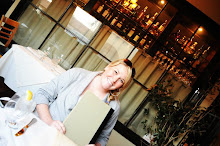(Michelle Xu is a PhD-graduate from the University of Toronto, where she worked to engineer diagnostic hand-held devices using nano-grating surface plasmon sensors and nano-pillar photonics crystal sensors to enable the early detection of cancer. Knowing that her device could identify high-risk individuals and help prevent disease, she was motivated to commercialize her research. To support her efforts, Newport and SPIE sponsored her attendance at the Biomedical Engineering Entrepreneurship Acadamy (BMEA) held at the University of California, Davis earlier this month. Below are her reflections on the experience. Her colleague Chang Won will be writing about his experience at the academy next week!)
The number one lesson I learned at the BMEA was that in academia, we start by solving a problem and then search for needs; in business planning, we start with a need, and then solve the problem. This issue of course raises the question, “Are technologies validated differently in academia and in industry?”
Certainly, technology validation in business is not just reproducibility: the technology has to create value and is a low risk investment. Hence, we need to foresee its entire life cycle: innovation, prototyping, testing, certifying, manufacturing, performance, maintenance, and disposal. Regarding the legal issues, in addition to the commonly known IP and copy right protections, there is also FDA approval, employment rights, security regulations, etc.
The business team is a multidisciplinary group of scientists, and also management and regulation specialists, typically not found in academia. Inevitably, people are your number one asset. Working with a team of the “right” people, you then need to assess the market.
Market research is probing what the end-user wants and knowing the business competitions, having the knowledge of which we might need to tweak the design and modify the marketing and distribution strategies. Besides these obvious points, there are also concerns for reimbursement positioning, which is especially important for pricing medical devices.
At this point, we are finally ready to put together a business plan that hopefully can convince some angels and venture capitalists to invest in us. But it's important to remember that this is just the beginning.
All of this comes together to show that knowing what we don’t know is the key to move ideas from research to market place. We, the academia-born researchers, have been sheltered from the complications of product development and never learned that commercialization is more than patent filing. We still have a lot to learn about business. And, once we decide to take the leap, there should be full commitment. This is my biggest "aha moment" from attending the BMEA workshop.
(And there is no better practice ground than the annual start-up pitch competition held at Photonics West. It's always a challenge to present a research project AND business plan in under 2 minutes. Submit your presentation for Photonics West, San Francisco, 21 - 26 January 2012.)
The number one lesson I learned at the BMEA was that in academia, we start by solving a problem and then search for needs; in business planning, we start with a need, and then solve the problem. This issue of course raises the question, “Are technologies validated differently in academia and in industry?”
Certainly, technology validation in business is not just reproducibility: the technology has to create value and is a low risk investment. Hence, we need to foresee its entire life cycle: innovation, prototyping, testing, certifying, manufacturing, performance, maintenance, and disposal. Regarding the legal issues, in addition to the commonly known IP and copy right protections, there is also FDA approval, employment rights, security regulations, etc.
The business team is a multidisciplinary group of scientists, and also management and regulation specialists, typically not found in academia. Inevitably, people are your number one asset. Working with a team of the “right” people, you then need to assess the market.
Market research is probing what the end-user wants and knowing the business competitions, having the knowledge of which we might need to tweak the design and modify the marketing and distribution strategies. Besides these obvious points, there are also concerns for reimbursement positioning, which is especially important for pricing medical devices.
At this point, we are finally ready to put together a business plan that hopefully can convince some angels and venture capitalists to invest in us. But it's important to remember that this is just the beginning.
All of this comes together to show that knowing what we don’t know is the key to move ideas from research to market place. We, the academia-born researchers, have been sheltered from the complications of product development and never learned that commercialization is more than patent filing. We still have a lot to learn about business. And, once we decide to take the leap, there should be full commitment. This is my biggest "aha moment" from attending the BMEA workshop.
(And there is no better practice ground than the annual start-up pitch competition held at Photonics West. It's always a challenge to present a research project AND business plan in under 2 minutes. Submit your presentation for Photonics West, San Francisco, 21 - 26 January 2012.)


Comments
Post a Comment